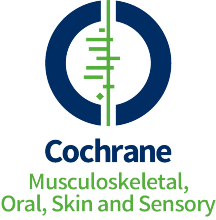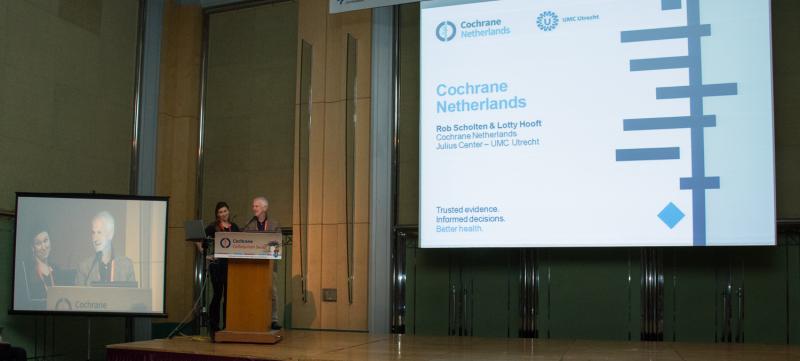Cochrane expresses thanks to Professor Gerd Antes for leadership of Cochrane Germany
- Read more about Cochrane expresses thanks to Professor Gerd Antes for leadership of Cochrane Germany

After leading Cochrane Germany for over 20 years, Professor Gerd Antes has stepped down as Director.
Gerd has focused his career on contributing to evidence-based medicine in Germany. While working on developing Cochrane Germany, he was also one of the founders of the German Network for Evidence Based Medicine. A recurrent theme during all these years was his work and advocacy for increasing public access to research results. He campaigned for ensuring clinical trial results are published in a timely manner and emphasized the challenges of non-publishing for the provision of non-biased high-quality synthesized evidence. He also was a strong advocate for making evidence available in other languages than English. And, in addition to language translation, Gerd’s work included the transfer of knowledge in commonly understood (lay) language. He worked with the media in making complex methodology understandable for patients, students and lay persons. One of the products of this work is the German version of the Testing Treatments website: Wo ist der Beweis? Cochrane Germany also became an active contributor to translations into German language (jointly with Cochrane Austria and Cochrane Switzerland), demonstrated by Cochrane Kompakt and the blog Wissen was Wirkt.
When speaking to Gerd about his lifelong investment in evidence-based medicine and accessible information, he says ‘it just goes to show how much investment it needs to eventually get sustainable funding, for a ten year period, and the importance of continuing the activities and messages again and again although there will be long periods where the lack of success and visible results may be frustrating. There are a lot of small pieces of success which in the end may sum up a big jump. That's a lesson to be learnt by the next generation’.
The success for Cochrane Germany came with the long-term funding provided by the Ministry of Health in 2017, which provides optimal conditions for the future of Cochrane Germany and its activities.
In addition to his work in Germany, Gerd was also a member of the Cochrane Steering Group (from 1998 to 2004) representing Centre Directors; and he has contributed to many Centre Director meetings.

Cochrane’s Chief Executive Officer, Mark Wilson, said: ‘I would sincerely like to thank Gerd for his outstanding contributions to Cochrane’s work over the last two decades. Cochrane Germany was one of the first Cochrane Centres to be established in 1998 and under Gerd’s leadership its impact on informing the debates about evidence-based medicine in Germany and beyond has been formidable. Gerd’s commitment and persistence to the cause of ensuring all have access to the best available evidence is truly commendable. On behalf of all of your Cochrane colleagues and friends, we thank you, Gerd, and wish you every success and happiness for the future.”
Cochrane Germany will be led under the new Directorship of Prof Joerg Meerpohl, supported by Michael Graf managing Director of the Cochrane Germany Foundation. Joerg holds the Cochrane professorship for Evidence in Medicine at the University of Freiburg and directs the Institute for Evidence in Medicine, Medical Center – University of Freiburg.









